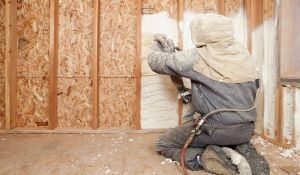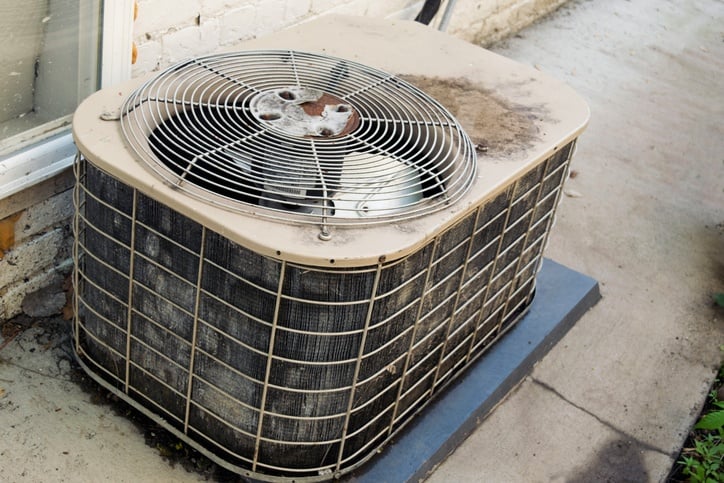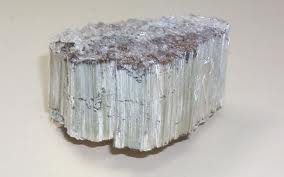When do you need a facility condition assessment?
[fa icon="calendar'] Jun 28, 2021 9:30:00 AM / by Robert Pfeifer, AIA
A facility condition assessment is a comprehensive evaluation of a property and its infrastructure to determine the current performance and understand how much longer it can continue to perform as designed. This information is critical for making decisions about needed repairs, maintenance, or improvements and the associated costs. This is similar to a property condition assessment for commercial real estate.
Read More [fa icon="long-arrow-right"]
Facility & Operational Planning: COVID-19 FAQ
[fa icon="calendar'] Jun 3, 2020 2:48:01 PM / by Martin J. Barry, PhD, CIH, CSP, PE
In our recent webinar, Getting Back to Work Safely: Experts Discuss Facility & Operational Planning for COVID-19, participants submitted many great questions reflecting the state of uncertainty and the desire for pragmatic answers from our experts. We developed this FAQ resource to help.
Read More [fa icon="long-arrow-right"]
Back to School COVID-19 Basics
[fa icon="calendar'] May 28, 2020 9:33:04 AM / by Martin J. Barry, PhD, CIH, CSP, PE
There are major benefits for students of all ages to return to school. But if a school system reopens business as usual (like in 2019), uncontrolled COVID-19 transmission within the school system and the community could cause major public health problems. Reopening schools with reasonable and workable changes should radically reduce that COVID-19 threat.
Read More [fa icon="long-arrow-right"]
PFAS Contamination in Massachusetts Drinking Water Supplies
[fa icon="calendar'] Nov 20, 2019 9:00:00 AM / by Michael P. Mellette, Sc.D., CIH, CSP, CHMM
Per- and polyfluoroalkyl substances (PFAS) are a group of chemicals that have been manufactured and used in the United States since the 1940s. PFAS are commonly found in both household and industrial products such as non-stick coatings, stain and water repellent fabrics, and cleaning chemicals. Ground water contamination with PFAS has been associated with fire-fighting foams, manufacturing sites, landfills, and other industrial operations. Because of their chemical structure, PFAS are highly persistent in both the environment and human body. Studies have indicated that some PFAS compounds may be associated with adverse health effects, including:
Read More [fa icon="long-arrow-right"]
Indoor Air Quality Issues and Spray Polyurethane Foam Insulation
[fa icon="calendar'] Sep 19, 2019 10:00:00 AM / by Michael P. Mellette, Sc.D., CIH, CSP, CHMM
Increased emphasis on green building design has resulted in a greater demand for more energy efficient building materials such as spray polyurethane foam (SPF) insulations. Despite their excellent air sealing capability and insulating properties, the U.S. Environmental Protection Agency has recognized that exposure to the isocyanates and other vapors, aerosols, and dusts created during and after installation, may cause respiratory sensitization, asthma, and odors.
Read More [fa icon="long-arrow-right"]
Legionella Management in the Hospitality and Healthcare Industries
[fa icon="calendar'] Sep 13, 2019 12:34:16 PM / by Michael P. Mellette, Sc.D., CIH, CSP, CHMM
Legionella is a type of Gram-negative bacteria that occurs naturally in freshwater environments. Although it is present in nature, Legionella becomes a substantial health concern when allowed to multiply in a building’s water systems. According to the U.S. Center for Disease Control (CDC), from 2000 through 2015, there were 49,930 confirmed Legionnaires’ cases in the United States. Legionnaires’ disease is a severe type of pneumonia that can rapidly become fatal. It is caused by breathing in aerosolized water droplets containing Legionella, with the majority of recognized Legionnaires’ disease cases occurring in hotels, resorts, cruise ships, and the healthcare setting.
Read More [fa icon="long-arrow-right"]
ECO-Gyms, powered by their own members
[fa icon="calendar'] May 4, 2018 2:00:00 PM / by Adrienne K. Paskind, AIA
Energy conscious building systems and "green" buildings are terms that have been around for quite some time. In fact, there are numerous interesting articles one can explore relative to the implementation of energy conscious building systems. Building professionals continually seek new ways to harness energy and develop innovative approaches to improve our environment and offset energy costs. Recently, we have seen the tremendous interest and growth in solar power from residential to large scale applications. Other renewable energy sources are also constantly being explored, such as converting energy expended by humans into energy used to help power buildings.

The Connection between Air Conditioning Systems and Mold
[fa icon="calendar'] Apr 25, 2018 2:00:00 PM / by Dudley Smith, PE, CEM
Mold spores are everywhere in the outdoor and indoor environment as a natural part of our world and they cannot be eliminated. Certain conditions are necessary for the growth and proliferation of molds into a problem area within a building. Controlling indoor moisture and humidity levels are key to controlling indoor mold growth. Air conditioning equipment and duct systems are very common locations for the development and amplification of mold in commercial properties. Property owners and managers need to be vigilant in inspecting and maintaining these systems, to minimize the frequency and magnitude of any exposures to occupants from hidden sources of mold.

After Years of Decline, Asbestos Use is on the Rise
[fa icon="calendar'] Dec 11, 2017 11:00:00 AM / by Mark McGivern, CSI, Aff. M. ASCE
Do not believe that asbestos is not being used in building products that you specify or construct. Contrary to popular belief asbestos is not illegal in the U.S. According to the EPA many building products can be manufactured with asbestos.
Read More [fa icon="long-arrow-right"]
Mold in walls after a hurricane or flooding
[fa icon="calendar'] Oct 19, 2017 4:00:00 PM / by Robert Pfeifer, AIA

